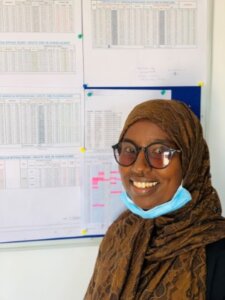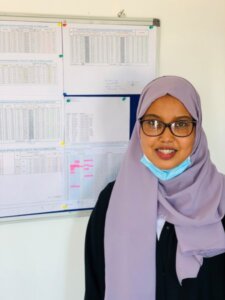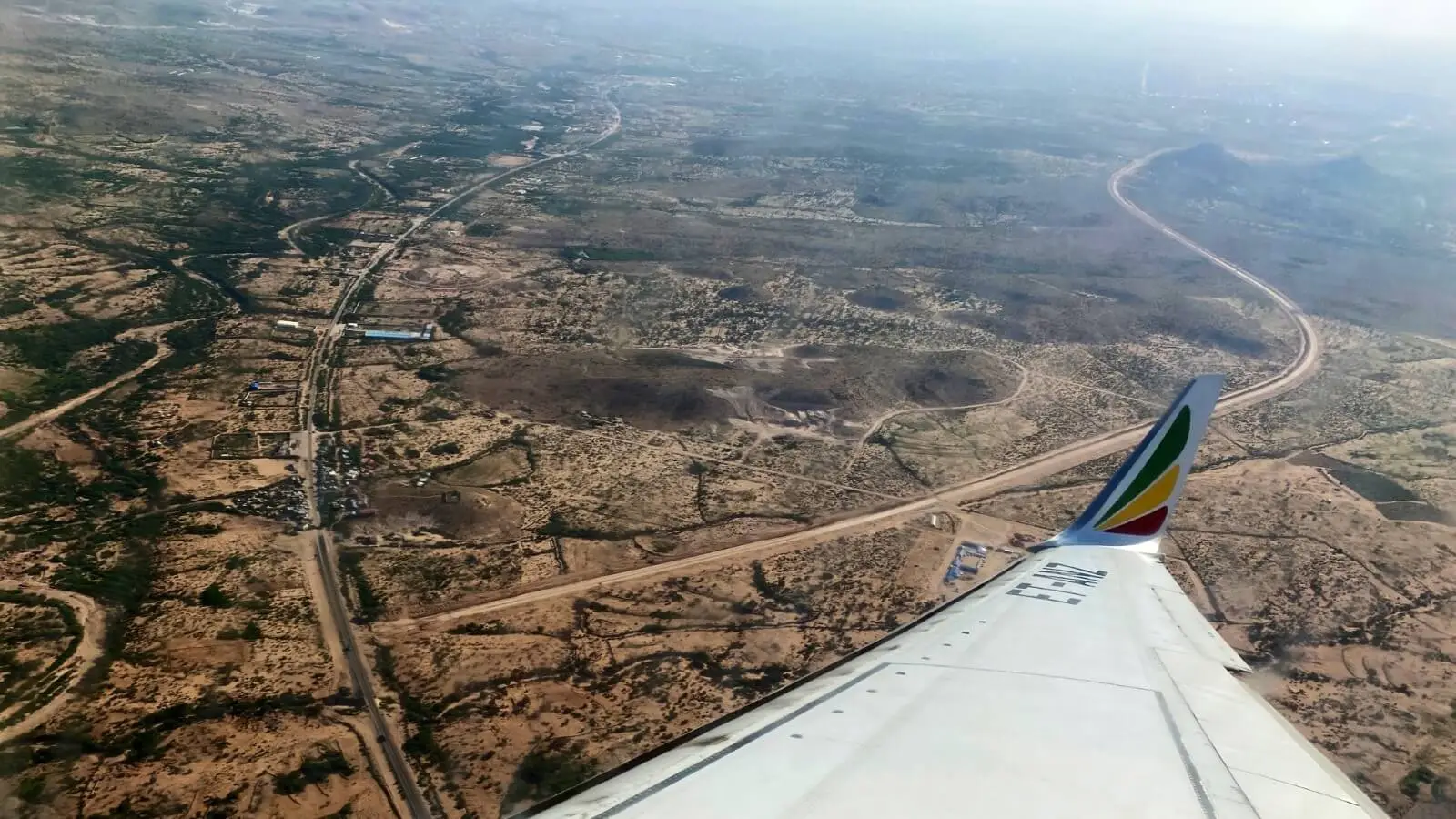The route is simply called Route 200. It’s part of the greater Berbera Corridor starting from Berbera Port all the way to Ethiopia at Tog Wajaale. With over US$16,600,425 funding from United Kingdom’ s Agency for International Development channelled through TradeMark Africa (TMA); Somaliland’s Ministry of Transport and Roads Development is representing the government in the effort of upgrading the 22.5km Hargeisa bypass into a two lanes single carriage way along the Berbera corridor around the Somaliland’s capital of Hargeisa. This project will reduce travel time and overall transport cost for the transport operators, increase volume of trade within Somaliland and neighbouring Ethiopia and reduce poverty and improve the people’s livelihood. The Hargeisa bypass is part of a three-component three-year programme by the United Kingdom known as “Unlocking Prosperity in the Horn of Africa”.
The labour force is about 200. Of that there are fifteen women working on the project. Here are some of their stories.
Community buy-in

I was keen to learn what the local community felt about the road; and had an animated chat with Hebaq Hassan, who is not only employed at the site, but is a resident of Hargeisa. I posed: Is the community happy with the bypass upgrade? What do the old men who were born, lived, herded goats, had their social gathering like weddings feel about this dusty road cutting into their land, into their heart? What do the womenfolk feel? What do they want? “Because you can’t assume that people didn’t live here before this road,” Hebaq Hassan, outspoken, bright-eyed, poses. “You also can’t assume you know what they want. And do you know how you know what they want? You ask them.” The truth is that developments such as these are inevitable, nobody can stand in the way of progress and change but the question our office has to confront is how can we have them participate in this process of change?”
Those are the questions Hebaq poses as a Sociologist Assistant who obtained her degree in information technology and a diploma in sociology from the University of Hargeisa. Before one rock was broken to start the construction of this road, Hebaq visited 80% of the homes in this area and spoke to close to 300 villagers – men, women, children – and eight schools over a time span of nine months to take in their feelings about this bypass. “You have to explain to the community why the road is important and beneficial to them and the country. You also explain how it might affect their normal lives and their environment for the good but also in any negative way. You have to give them the whole picture to avoid conflict but also for harmony.”
She visited them again after construction had commenced to see if their views had changed and of any arising concerns. “Mostly their concerns were the dust and the noise from the heavy artillery machinery. Parents were concerned about their children crossing roads during this construction. Some people complained about the sheer volume of traffic that has increased along the road. Women said they liked that they could sell small wares to the construction workers.”
The team has also organised sensitisation programs in schools capturing about 200 students. “This involves road safety awareness lessons seeing as the traffic has increased exponentially. We also erected signposts to aid in movement across the road, so our job was to explain what that entails. We spoke to them about protection of the environment and why it was key for us and for them.”
HOODO OMER HAYBE
Environmental assistant

Good infrastructure is great, trade even better, however, Hoodo’s first priority is the environment. “We can’t destroy the environment for great gains in trade and infrastructure.” She says. “To that end, I’m the person charged with ensuring that that doesn’t happen.” This has involved extensive engagements with the local community and government to ensure that there is awareness, acceptance and involvement.
“Largely my job is to ensure that air pollution and noise pollution are controlled in order not to affect the lives of the locals. We also have to monitor the disposal of chemical waster for instance which should be done according to the stipulated environmental regulations. ” She says. “But even within, we have to make sure that the workers’ health is protected as this project ensues.”
Her first priority is the community and there are many processes that she has to go through before she okays a job. “Are there any cases of soil contamination? We are building a culvert, great, but what does the owner of the land feel about it, do we have consent? Is there an ablution facility for workers? Is the dusty road sprayed with water to reduce dust? Are the soak pits well maintained? What about the waste from the workshop? Is there rock blasting? How do we handle non-bio degradables?” She poses. “That’s my job.”
There are over hundreds of people living in the nearby communities, people who appreciate what the road construction will do for their livehoods but also who might not be aware of the environmental impact that will bring. Hoodo who studied in North South University of Bangladesh is tasked with the role of engaging them on this so that they have an understanding.


